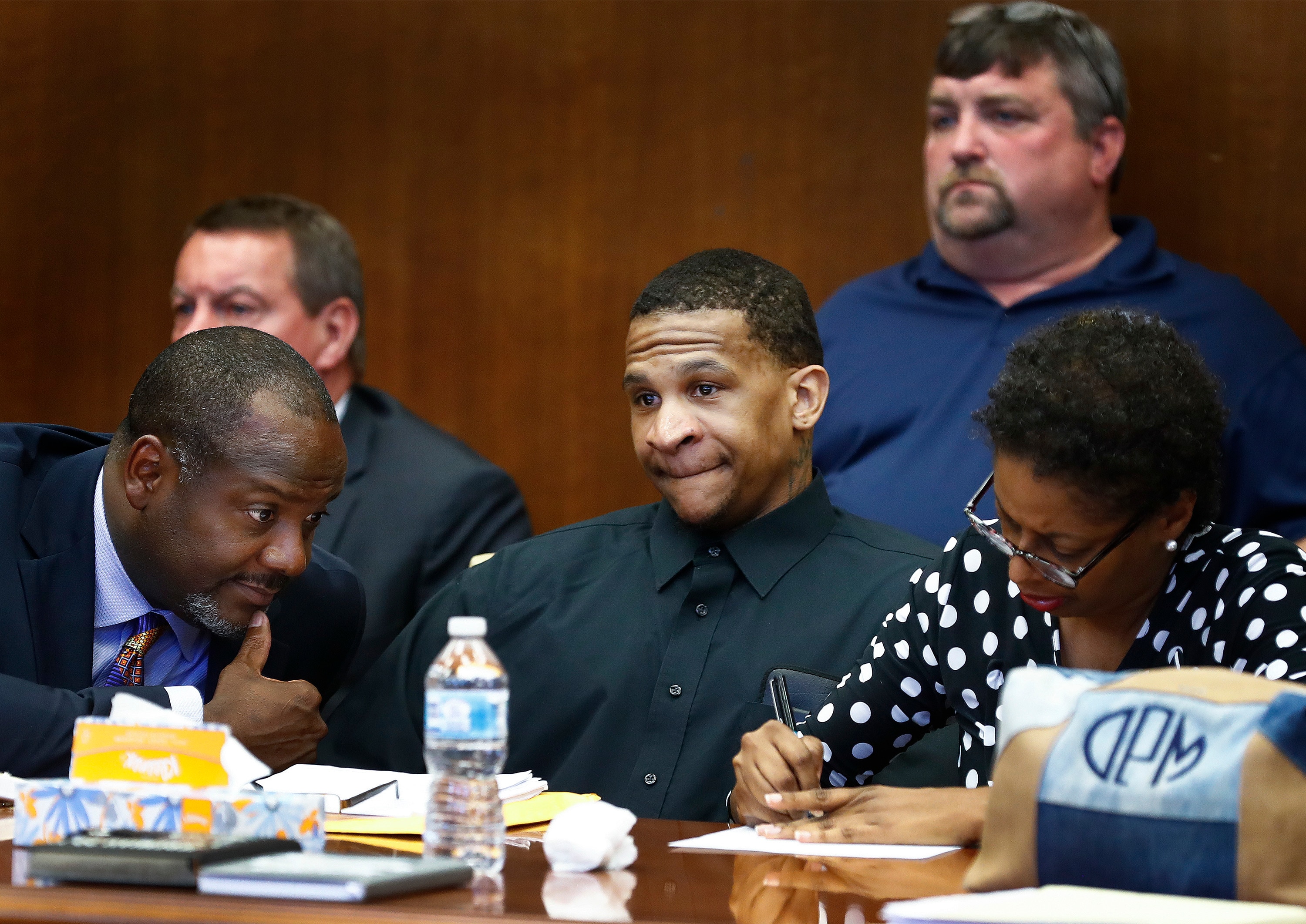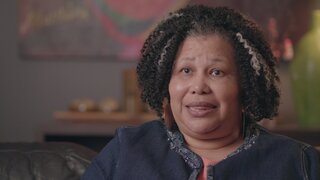Create a free profile to get unlimited access to exclusive videos, breaking news, sweepstakes, and more!
Judge Declares A Mistrial In Jessica Chambers Murder Case
After hours of deliberation, a jury could not unanimously determine the guilt of Quinton Tellis in a retrial.

Once again, a Mississippi jury could not reach a unanimous verdict as to whether Quinton Tellis was responsible for killing 19-year-old Jessica Chambers. On Monday, jurors let Circuit Judge Gerald Chatham know that they could not come to a decision regarding the 2014 burning death of the former cheerleader.
According to defense attorney Darla Palmer, the jurors were split 6-6 on the verdict.
The first also ended in a hung jury last year.
“We’re disappointed the jury didn’t find him not guilty. The ball is now in the court of the district attorney,” defense attorney Alton Peterson said, according to the Clarion Ledger.
Chambers was discovered walking on the side of a rural road in the tiny town of Courtland, Mississippi near her burning car on Dec. 6, 2014. More than 93 percent of her body had been badly burned. Prosecutors believe she was inside her car when it was doused with an accelerant before being set ablaze. She managed to escape the burning vehicle but died a short time later at the hospital. It took police 14 months, and several interviews with Tellis, to make an arrest in the case.
Like in the first trial, closing arguments highlighted jurors' choice. Prosecutors said evidence links Tellis to Chambers' death and that he lied to investigators. The defense emphasized testimony by emergency workers that they heard a dying Chambers say someone named Eric attacked her and that prosecutors concocted a complicated theory that makes Tellis look like a "supercriminal."
Although the conclusion was the same, the trial differed from the first one. The jurors were from a completely different town and there were new witnesses the second time around.
Dr. Carolyn Wiles Higdon, a speech pathologist and professor in the Communication Sciences and Disorders Department at Ole Miss, was the first. She testified that Chambers would have been unable to speak after being set on fire, testimony that contradicted first responder witness accounts that Chambers uttered the phrase, “Eric did it,” while dying. Those three words dominated the first trial. It remained just as important during the retrial.
Panola County Deputy Sheriff Daryl House gave new testimony what while Chambers was in the ambulance, House asked her if her boyfriend did this to her; she said no. At the time of her death, Chambers was dating a man who was incarcerated. House testified that Chambers appeared to understand his question and was able to answer it, further evidence she was communicating at the scene though her condition deteriorated precipitously by the time she arrived at a Memphis hospital.
Paramedic Josh Perkins, who treated Chambers in an ambulance, testified that her mouth and throat were blackened with soot but were not swollen, and that her airways were open. Perkins, a trained professional in handling medical emergencies, contradicted the State’s expert witness in speech language pathology when he testified that Chambers was alert and, though struggling, said “Eric” had done this to her. Deputy Sheriff's Deputy Chuck Tucker also questioned Chambers when she was in the ambulance and he told jurors he asked her if Eric was black or white and she replied black.
Another new witness for the prosecution was Courtland resident Sherry Flowers, who testified during the second trial she went to a funeral and then a family gathering the day Chambers was murdered. She was flagged down by a young man on the side of the road on Main Street in Courtland who told her he wanted a lift to check on his aunt, Julia Chambers (no relation to Jessica Chambers) who lived about a mile down the road. She testified that this was just after dark.
Flowers described him as a black man, about 19 years old, with a small-to-medium build. She said she dropped off the young man near, but not at, Julia Flowers’ home. This was just a few miles from the location where Jessica Chambers was set on fire. However, prosecutors implied that the hitchhiker was Tellis and that instead of going to Julia Chambers’ home, he went to his sister’s nearby to borrow her truck, retrieve his five-gallon gas can, then return to the scene of the crime where Chambers was allegedly unconscious.
The prosecution also asked more questions of their witnesses during the retrial in order to strengthen perceived weaknesses in the first trial.
The biggest effort was to discredit the testimony of first responders who heard Chambers say “Eric” set her on fire. Dr. William Hickerson, a physician with expertise in burn patients, testified Thursday and expanded on last year’s testimony. He was adamant that Chambers could not make audible sounds at the scene — an argument he apparently didn’t make convincing enough a year ago during the first trial. At least eight first responders testifying under oath at both trials that they heard her speak and gesture.
Chambers and Tellis knew each other, well enough that Chambers had asked him for money for gas and food. They had driven around together for about an hour with another friend the day of her murder. Prosecutors claimed that cell phone data evidence placed him and Chambers together the night of the murder, too.
Peterson told jurors that's a complicated scenario making Tellis out to be a "supercriminal." He suggested that investigators, out of leads months after the crime, unfairly focused on Tellis. He said there are too many facts not in evidence and prosecutors are asking jurors to make too many "jumps" in a timeline that's "utterly ridiculous."
"They came back to Quinton Tellis and they started working backwards," Peterson said. "They came up with a picture and it was their job to make the evidence fit into that picture."
Tellis and his family has maintained his innocence. He faces another murder indictment in Louisiana in the Monroe stabbing death of Meing-Chen Hsiao, a former Taiwanese graduate student. He was already serving five years in prison in Mississippi on an unrelated burglary conviction and had already pleaded guilty to unauthorized use of Hsiao's debit card in Louisiana.
The Associated Press and legal analyst Beth Karas contributed to this report.
[Photo: The Associated Press]

























